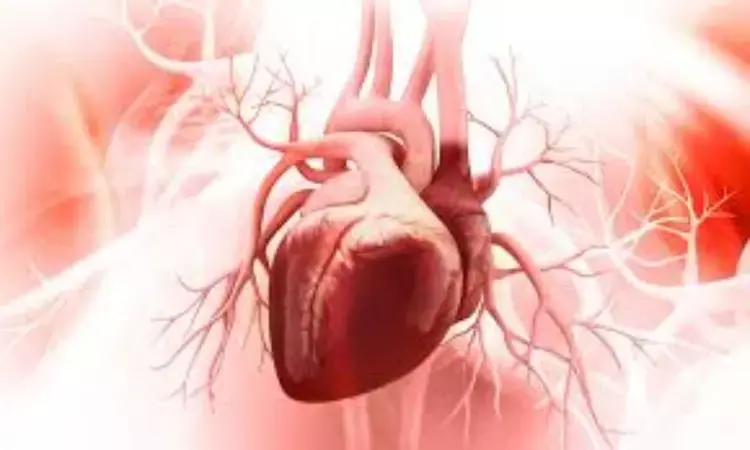- Home
- Medical news & Guidelines
- Anesthesiology
- Cardiology and CTVS
- Critical Care
- Dentistry
- Dermatology
- Diabetes and Endocrinology
- ENT
- Gastroenterology
- Medicine
- Nephrology
- Neurology
- Obstretics-Gynaecology
- Oncology
- Ophthalmology
- Orthopaedics
- Pediatrics-Neonatology
- Psychiatry
- Pulmonology
- Radiology
- Surgery
- Urology
- Laboratory Medicine
- Diet
- Nursing
- Paramedical
- Physiotherapy
- Health news
- Fact Check
- Bone Health Fact Check
- Brain Health Fact Check
- Cancer Related Fact Check
- Child Care Fact Check
- Dental and oral health fact check
- Diabetes and metabolic health fact check
- Diet and Nutrition Fact Check
- Eye and ENT Care Fact Check
- Fitness fact check
- Gut health fact check
- Heart health fact check
- Kidney health fact check
- Medical education fact check
- Men's health fact check
- Respiratory fact check
- Skin and hair care fact check
- Vaccine and Immunization fact check
- Women's health fact check
- AYUSH
- State News
- Andaman and Nicobar Islands
- Andhra Pradesh
- Arunachal Pradesh
- Assam
- Bihar
- Chandigarh
- Chattisgarh
- Dadra and Nagar Haveli
- Daman and Diu
- Delhi
- Goa
- Gujarat
- Haryana
- Himachal Pradesh
- Jammu & Kashmir
- Jharkhand
- Karnataka
- Kerala
- Ladakh
- Lakshadweep
- Madhya Pradesh
- Maharashtra
- Manipur
- Meghalaya
- Mizoram
- Nagaland
- Odisha
- Puducherry
- Punjab
- Rajasthan
- Sikkim
- Tamil Nadu
- Telangana
- Tripura
- Uttar Pradesh
- Uttrakhand
- West Bengal
- Medical Education
- Industry
Stress CMR-inducible MI and LGE may predict MACE in HFpEF patients without CAD: Study

France: A recent study found that stress cardiovascular magnetic resonance (CMR)-inducible myocardial ischemia and late gadolinium enhancement (LGE) may predict the occurrence of major adverse cardiac events (MACE) in HFpEF patients. The study appears in the journal JACC: Cardiovascular Imaging.
Previous studies have suggested that ischemia could play a critical role in heart failure in patients with preserved ejection fraction (HFpEF). Théo Pezel, Institut Cardiovasculaire Paris Sud, Cardiovascular Magnetic Resonance Laboratory, Hôpital Privé Jacques Cartier, Ramsay Santé, Massy, France, and colleagues aimed to investigate the long-term prognostic value of inducible myocardial ischemia assessed by vasodilator stress CMR in patients with HFpEF.
The study included consecutive patients prospectively referred for stress CMR with HFpEF as defined by current guidelines, without known coronary artery disease (CAD) between 2008 and 2019. They were followed for the occurrence of MACE, as defined by cardiovascular mortality or nonfatal myocardial infarction (MI).
Secondary composite outcomes included cardiovascular mortality or hospitalization for acute HF. The prognostic value of inducible ischemia or late gadolinium enhancement (LGE) by CMR was determined.
The study revealed the following results:
- Among the 1,203 patients with HFpEF (73 ± 13 years of age; 29% males) who underwent stress CMR and completed follow-up (6.9 years interquartile range [IQR]: 6.7 to 7.7 years]), 108 experienced a MACE (9%).
- Kaplan-Meier analysis showed inducible ischemia and LGE were significantly associated with MACE (HR: 6.63 and HR: 2.56, respectively) and secondary outcomes (HR: 8.40 and HR: 1.87, respectively).
- In multivariate analysis, inducible ischemia and LGE were independent predictors of MACE (HR: 6.10 and HR: 1.62 respectively).
"Stress CMR-inducible myocardial ischemia and LGE have accurate discriminative long-term prognostic value in HFpEF patients without known CAD to predict the occurrence of MACE," the authors concluded.
Reference:
The study titled, 'Long-Term Prognostic Value of Stress CMR in Patients With Heart Failure and Preserved Ejection Fraction," was published in the journal JACC: Cardiovascular Imaging.
Dr Kamal Kant Kohli-MBBS, DTCD- a chest specialist with more than 30 years of practice and a flair for writing clinical articles, Dr Kamal Kant Kohli joined Medical Dialogues as a Chief Editor of Medical News. Besides writing articles, as an editor, he proofreads and verifies all the medical content published on Medical Dialogues including those coming from journals, studies,medical conferences,guidelines etc. Email: drkohli@medicaldialogues.in. Contact no. 011-43720751


